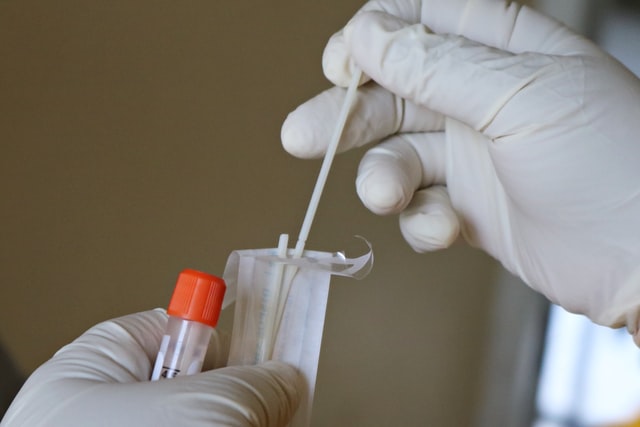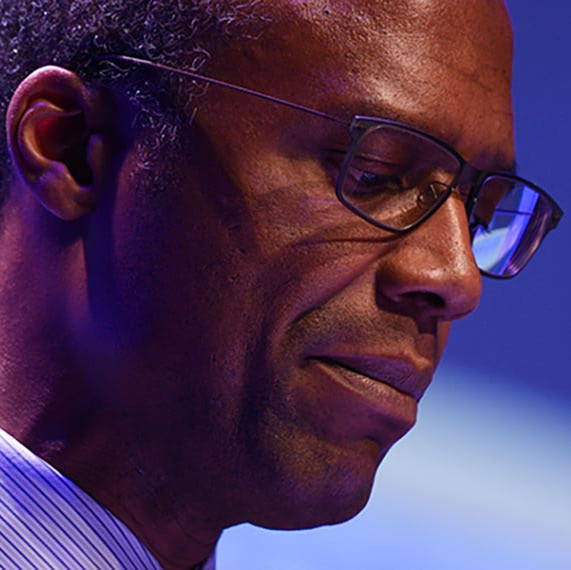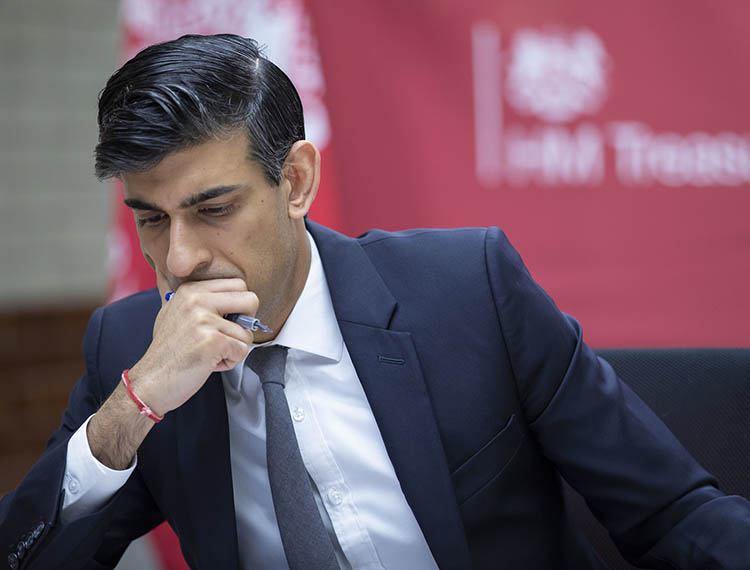Staggered rollout of Covid testing for colleges and schools from January – Sector Response

The government has today [Thursday 17 December] confirmed that all secondary schools and colleges in England will be able to test more of their staff and students in a round of free coronavirus testing from the first week of January.
- Testing offered to schools and colleges to minimise cases and transmission of the virus following return of students after Christmas
- Supports national priority to keep education open for all, while keeping schools and colleges safe
- Early years, primary children, exam year groups, vulnerable and critical workers’ children will all attend school or college in person from the start of term
- Secondary schools and colleges to offer remote education to other students during first week of term
This will help to deliver the national priority to keep education open for all and help fight the spread of the virus, while keeping schools and colleges safe. Building on the incredible work schools and colleges have done to be Covid-secure, the round of testing will help to reassure students, parents and teachers about returning to school and college.
The testing will also help to tackle the one in three who have the virus but do not have symptoms, so could be spreading the disease unknowingly, and minimise disruption during the spring term by helping identify positive cases when pupils return to face-to-face education following the Christmas break.
The offer of tests builds on the extensive protective measures already in place in schools and colleges to make them safe, as well as the government’s recent announcement that every secondary school and college in England will have access to rapid testing from January.
Students in exam year groups, vulnerable children and children of critical workers will all attend school or college in person from the start of term, as will all students in primary, special and alternative provision schools and colleges.
Vocational exams scheduled for the week of 4 January will go ahead as planned.
Secondary schools and colleges will operate a staggered return, offering all non-exam year groups full-time remote education, as close as possible to that which students would get in class, during the first week of term, with face-to-face education for all starting on 11 January.
 Education Secretary Gavin Williamson said:
Education Secretary Gavin Williamson said:
“This targeted testing round will clamp down on the virus as students return from the Christmas break and help stop the spread of Covid-19 in the wider community.
“Building on the fantastic actions that schools and colleges have already taken to be as safe as possible, this additional testing will catch those who have the virus but are not showing symptoms to help schools and colleges stay in control of the virus throughout the spring term.
“The new programme of daily testing for close contacts of those with confirmed cases of the virus will also mean we can keep more pupils in school, the best place for their development and wellbeing. Over the rest of the academic year and in the run up to exams, it will remain a national priority to keep education open for all, while keeping schools as safe as possible.”
 Health Secretary Matt Hancock said:
Health Secretary Matt Hancock said:
“Testing in schools is crucial for us to break the chains of transmission and keep students, staff and their loved ones safe. That’s why we’re supporting schools and colleges in England to offer testing at the start of January.
“Rapid testing is a reliable and effective way to identify people without symptoms that we otherwise wouldn’t know about. By doing this we can help schools and colleges open safely after the Christmas break and ensure there is minimal disruption to our children’s education.”
 David Hughes, Chief Executive of the Association of Colleges, said:
David Hughes, Chief Executive of the Association of Colleges, said:
“There are more than two million people learning and training in England’s colleges. From day one, colleges have been doing everything they possibly can to keep learning happening and students and staff protected, often at great speed, with huge burdens and with no precedent. They should all be congratulated for the way they have stepped up to the challenge.
“But their jobs get evermore challenging. Until the vaccine can be fully rolled-out, a range of safety measures including robust testing and track and trace operation are necessary. The announcement on mass testing should have been a welcome one because colleges want to have that capacity. But the government needs to recognise that it cannot keep making monumental announcements at the last minute, which add additional responsibility and stresses on leaders and staff without the full guidance or resources to fulfil their demands.
“Things are moving fast on the virus, requiring government to make difficult decisions, and rapidly. But those decisions need to be realistic and pragmatic. The over-ambitious start date of 4th January is unfair on school and college leaders and staff – just one more unrealistic burden and additional stress after what has already been the most difficult nine months imaginable. If we are going to beat this virus, then we need staff in education institutions to be recharged, energised and ready to do whatever they need to do – this does not help that.
“Colleges will, as always, perform miracles to make testing available as soon as is feasibly possible. Government needs to be clear about a long list of issues raised by the entire education sector, before colleges can plan it – including the funding for it, the logistics, the training, the safeguarding and issues of consent. Based on the government advice, we estimate that colleges will need to have more than 5,000 people working full-time on testing to deliver the promises made to the public about students and staff.
“Meanwhile around 130,000 college students will be focused on their exams which start in the first week of January – they need urgent reassurance that the exams will go ahead and be safe.”
 Dr Mary Bousted, Joint General Secretary of the National Education Union, said:
Dr Mary Bousted, Joint General Secretary of the National Education Union, said:
“The NEU was amongst the first to ask for mass testing of school pupils. But today’s announcement by Government, made on the last day of term, demonstrates ministerial panic rather than rational and responsible action in response to the exponential rise in Covid-19 infection rates amongst secondary school pupils.
“The government is asking secondary school leaders to contact, train and deploy an army of volunteers to administer testing to the whole of England’s secondary school population. Armed with a 30-minute training video they are being asked to administer tests to adolescents – who may have their own views about what is quite an invasive procedure. Parents will be required to give their consent to their children being tested. They will have to be contacted – in itself, a huge task.
“The presence of year 11 and 13 pupils on the school site at the same time as the testing arrangements and procedures are being put in place will be extremely problematic. It is highly likely that these pupils will return from their Christmas holiday with higher levels of Covid-19 infection. Those who test positive will be required to isolate, which involves a huge amount of school staff taking the time to contact parents and to trace close contacts. Yet again government ministers fail to understand the fundamental issues involved, and the effort and time it takes to operate Covid security procedures in schools.
“All of these problems are compounded by the findings of the BMJ that half of positive cases are missed if the tests are not done by trained medical personnel. Governors and parents have an important role to play in children and young people’s education. The majority of them, however, have no medical training. However well intentioned, they will not be able to identify and isolate a significant proportion of Covid cases amongst the secondary school age population – many will be asymptomatic.
“We are writing to Gavin Williamson today with a series of urgent questions about today’s announcement.
“This announcement follows a long and ignoble tradition by this government of treating school leaders with contempt. Trust is completely broken. This Government has finally put a seal on an exodus of education professionals in 2021.”
 Dr Patrick Roach, General Secretary of the NASUWT-The Teachers’ Union, said:
Dr Patrick Roach, General Secretary of the NASUWT-The Teachers’ Union, said:
“The Government’s latest announcement demonstrates that Covid-19 transmission in schools is a major factor in continuing the spread of the virus.
“Delaying the return of some pupils in secondary schools by a week may be of some assistance, but much more action is needed to keep pupils, staff and their families safe.
“The failure of the Government to recognise the very real Coronavirus risks impacting on primary and special schools is a major cause for concern.
“Yet again the Government is announcing significant changes affecting schools with little or no time to prepare before the Christmas closure period.
“The NASUWT has been clear that it is not the responsibility of teachers or school leaders to undertake testing of pupils or employees. The Government has to ensure that it puts into place all the necessary resources needed to deliver the practical and financial support to schools to ensure safety in schools. The announcement by the Health Minister does not deliver the resources needed.
“Alongside the introduction of mass testing, the Government must urgently take further action to ensure that essential Covid-safety measures are securely in place in all schools and colleges to minimise the risk of transmission of the virus amongst pupils and staff.”
 UCU general secretary Jo Grady said:
UCU general secretary Jo Grady said:
‘The government clearly has not got this pandemic under control. A delay to in-person teaching is the bare minimum it should do to protect college staff, students and the wider public. We know that in-person teaching risks increasing the rate of transmission, so it beggars belief that the government has threatened legal action to keep classrooms open this week and has waited until the day before staff and students break up for Christmas to announce these plans. Staff who have been working hard all term now have to once again respond to last minute guidance that should have been decided months ago.
‘We have concerns about the reliability of these tests. The results cannot be relied upon as the basis to reopen college campuses when studies have shown they are often wrong. Government needs to fully fund and resource this testing programme. Most colleges have thousands of students, it will be incredibly hard to put everything in place to test all of them by January, and it is unrealistic to expect untrained staff to be able to safely administer the tests.’
 Paul Whiteman, general secretary of school leaders’ union NAHT, said:
Paul Whiteman, general secretary of school leaders’ union NAHT, said:
“The government could not have created more of a shambolic situation. They have handed schools a confused and chaotic mess at the 11th hour.
“Throughout this pandemic the government’s actions have actively worked against the ambition of delivering the best education possible.
“By dropping this on schools minutes before the end of term, leaders are left with no time to implement government’s instructions. Schools, pupils and parents are now left with no clear idea of what is expected of them, or what to expect next term.
“Primary schools appear to have been completely ignored in this announcement. School staff and parents of younger children are rightly worried about transmission of the virus over Christmas and will struggle to understand why they are being treated differently.
“Once again, an announcement that, if properly planned and executed could have been positive, is poised to fail. It is now urgent that the government confirms to schools the precise levels of support available to them to carry out testing.
“If education is the priority government says it is they can’t keep layering extra responsibilities on schools. Time to support schools in delivering education rather than expecting them to support everything else.”
 Kate Green MP, Labour’s Shadow Secretary of State for Education, commenting on today’s announcement that mass testing of secondary school pupils is to be introduced in schools from 4th January, said:
Kate Green MP, Labour’s Shadow Secretary of State for Education, commenting on today’s announcement that mass testing of secondary school pupils is to be introduced in schools from 4th January, said:
“The government had months to listen to Labour and to schools and get testing in place, but has dithered and delayed and is now announcing this essential policy right at the end of term.
“Schools and parents have been left with no time to prepare or put plans in place. After teachers and school leaders have been working so hard this term it is a kick in the teeth to expect this to be done over Christmas.
“The government must urgently engage with school leaders to put in place proper support for schools to deliver mass testing. It has had no plan to support schools and colleges through the pandemic, and that cannot continue.”
Responding to the Government today announcing that the reopening of secondary schools in England after Christmas will be staggered and a large-scale coronavirus testing exercise undertaken, Cllr Judith Blake, Chair of the Local Government Association’s Children and Young People Board, said:
“Large-scale COVID-19 testing clearly has the potential to help keep schools open, and staff and pupils out of isolation. This is vital as we work towards our shared goal of ensuring pupils don’t fall further behind in their education.
“However, this is a hugely ambitious programme to be completed in an extremely short timeframe when school staff and leadership teams, who are already exhausted after what has been a very challenging year, may be forced to work over the Christmas break to help coordinate it.
“It is vital that the expertise of local public health teams is used to help with the logistics and rollout of the plan, while government needs to urgently publish guidance that supports this announcement to provide clarity for schools, address questions which currently remain unanswered, and takes account of local needs and capacity challenges.
“Schools have already incurred considerable additional costs due to COVID-19, so while it is good the Government’s announcement promises that reasonable workforce costs will be reimbursed, this should be widened and backdated to cover staffing costs including supply teachers which is one of the biggest costs for schools.”
Schools and colleges will be able to establish testing to offer students two rapid tests three days apart, with positive results confirmed by a lab-based PCR test.
Guidance will shortly be provided to schools and colleges on how to set up and staff the testing sites. Armed forces personnel will support directly through planning with schools and colleges. Reasonable workforce costs will be reimbursed.
Those students attending face-to-face education in the first week of term will be offered the first testing dates.
Testing will be optional but strongly encouraged, particularly in areas of higher prevalence of the virus. Consent will be required from the student or parent as appropriate.
Whilst a negative test result can provide reassurance, those returning to education following a negative result should still follow all relevant guidance including enhanced hygiene measures and wearing face coverings where appropriate.
Students who receive positive test results will be required to self-isolate in line with existing guidance.












Responses